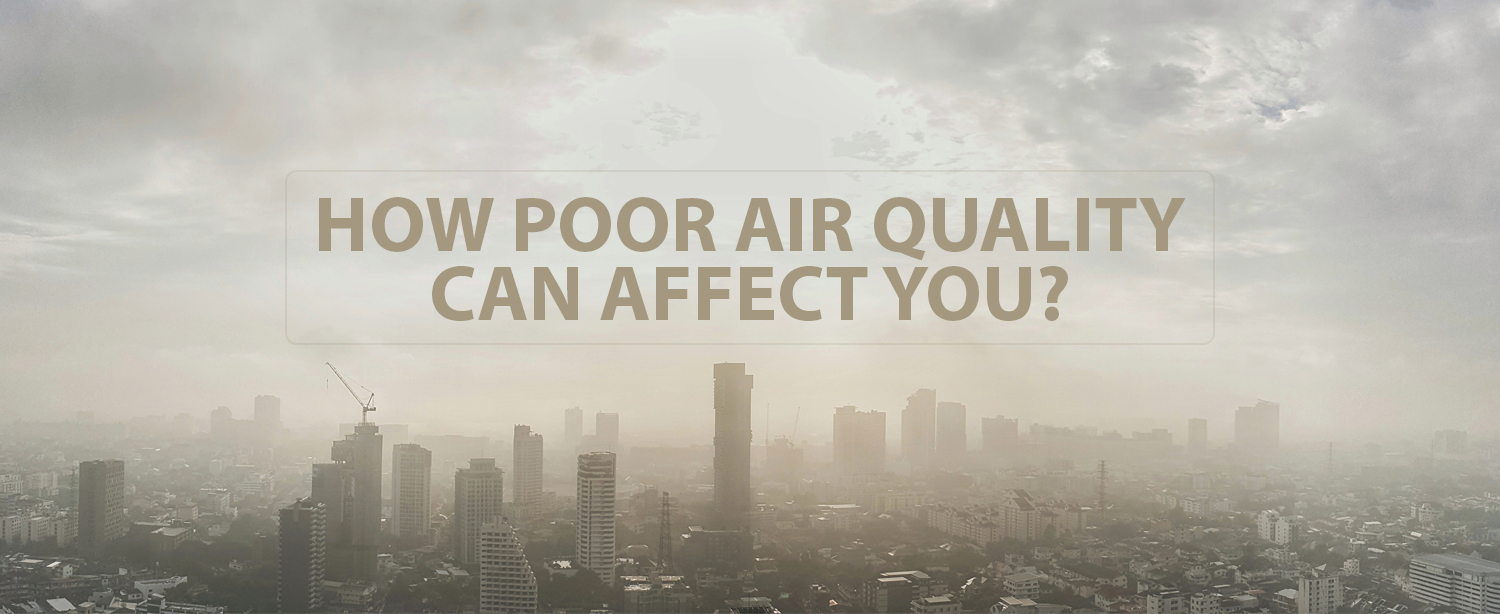Suffering from chest pain, wheezing and a cough that refuses to go away? Air pollution is a major problem in urban and rural India, and it is having a significant impact on the health of the people who live there. Many cities in India have very poor AQI levels, which mean that the air is highly polluted and can cause a range of health problems. The Air Quality Index (AQI) is a measure of the quality of the air that we breathe, and it is used to describe how polluted the air is. According to the network of monitoring stations that make up the System of Air Quality Forecasting and Research (SAFAR), an AQI (Air Quality Index) of 0-49 is regarded as “good,” 50 to 99 as “satisfactory,” and 100 to 199 as “moderate.” AQI in excess of 200 is considered “poor”, and above 300 “very poor”, AQI above 400 “severe” and above 500 is considered “severe+”. In the first week of February 2023, the AQI in Mumbai was recorded in the very poor category as it stood at 303. Mumbai’s air quality has deteriorated and is now worse than Delhi’s AQI.
Mumbai has been ranked the second most polluted city in the world last week. Throughout the last winter, Mumbai has experienced slow to very slow windspeed in most of the days, due to which the suspended particulate matters remained suspended in air for longer duration, therefore affecting the AQI. Experts attribute this weather condition as well as external factors like construction and vehicular emission for the deteriorating air quality. Pollution levels have been soaring in the financial capital for the last few weeks, leading to more and more respiratory infections for residents, especially the elderly and young children.
How poor AQI harms your health?
Several people are visiting hospital and clinics with complaints of respiratory distress, asthma, allergic rhinitis and chronic inflammation of the airways, among other issues. The health effects of poor air quality can be significant. High levels of air pollution have been linked to respiratory diseases such as asthma, chronic obstructive pulmonary disease (COPD), and lung cancer. One of the most common pollutants in the air is particulate matter (PM), which is made up of tiny particles that can get into our lungs and cause serious respiratory problems. In addition to PM, other pollutants such as nitrogen oxides and sulfur dioxide can also cause health problems. Exposure to air pollution for long periods can also exacerbate existing health conditions, such as heart disease and diabetes. It has also been noted that ophthalmologists in the city are getting cases with eye irritation related to air pollution, especially in people who travel daily for long distances.
Health precautions
So, what can people do to protect their respiratory health in areas with poor air quality? One of the most important things is to monitor the AQI levels and take appropriate precautions when the levels are high. These include:
- Avoid exercising outdoors when pollution levels are high
- Try to stay indoors if possible
- Wear a mask if stepping outdoors
- Quit smoking
- Invest in an air purifier
- Keeping indoor plants
- Don’t burn wood or garbage
- Take medication for asthma
The AQI in many cities in India is a major public health concern, and it is essential for individuals to take steps to protect their respiratory health. This might include monitoring AQI levels, maintaining good indoor air quality, and staying informed about the latest research on air pollution and its health effects.
Do any members of your family have chest pain or breathing difficulties? Do your kids have a persistent cough and cold? Consult our highly experienced team of doctors at the Department of Pulmonary Medicine. Our pulmonologists can help manage your symptoms with prompt diagnosis and care and also recommend preventive care.
Tags: Pulmonary Medicine, Pulmonologist


